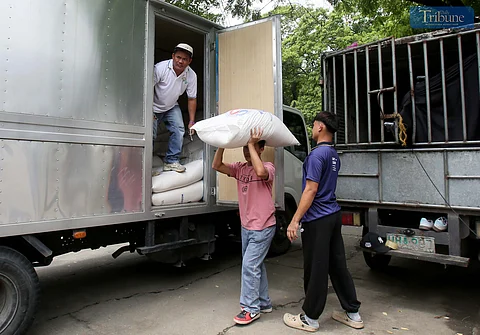
- NEWS
- the EDIT
- COMMENTARY
- BUSINESS
- LIFE
- SHOW
- ACTION
- GLOBAL GOALS
- SNAPS
- DYARYO TIRADA
- MORE

To ensure that government support goes directly to rice farmers – not middlemen – the National Food Authority (NFA) has announced a new set of procurement guidelines aimed at promoting transparency and curbing abuse in the palay buying process.
Agriculture Secretary and NFA Council Chairman Francisco Tiu Laurel Jr. said the measures are designed to guarantee fair pricing and improve the income of small-scale rice farmers across the country.
Under the updated system, only verified rice farmers can sell palay to the NFA. Eligible sellers must be listed in the Registry System for Basic Sectors in Agriculture (RSBSA) or present certification from their respective local governments.
NFA branches are now required to submit monthly procurement reports indicating the names of farmers and volume of palay sold. These reports will be publicly posted at branch offices and, with consent, may also be published on the agency’s social media platforms, in accordance with data privacy laws.
To further enhance transparency, the NFA is setting up dedicated monitoring tables at each warehouse where accredited farmers' groups can observe transactions.
“This is to ensure that only legitimate farmers are selling to NFA and to address the allegations that traders are the ones benefitting from NFA,” NFA Administrator Larry Lacson said.
“These new rules will open our palay procurement to public scrutiny.”
The new protocol also mandates field verification prior to delivery, ensuring farmers actually have stocks ready. Post-delivery, checks will confirm that the same farmer who registered the delivery completed the transaction. Any irregularities are to be reported immediately.
The NFA is also imposing strict volume limits: a farmer may only sell up to the quantity listed in their official records. Additional controls will prevent farmers from selling outside their designated localities.
All deliveries will be logged with details including the seller’s name, vehicle plate number, and arrival time. Sales data will be recorded digitally and updated daily by region and warehouse.
The agency will conduct routine audits of procurement transactions, and NFA personnel found circumventing the rules will face sanctions under the Magna Carta for Small Farmers.
